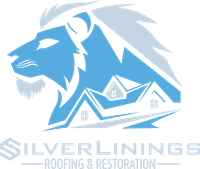New Roof Installation in Charlotte: Materials, Timeline, and What to Expect
Installing a new roof represents one of the most significant home improvement investments Charlotte homeowners make. Understanding the process, from material selection through final completion, helps ensure successful outcomes and appropriate expectations. This comprehensive guide walks you through every aspect of roof installation, helping you make informed decisions that protect your home for decades to come.
Material Selection Fundamentals
Choosing the right roofing material significantly impacts both performance and longevity. Asphalt shingles remain the most popular choice for Charlotte homes, offering excellent value, durability, and aesthetic options. Architectural shingles provide enhanced wind resistance and longer warranties compared to basic three-tab options.
Metal roofing provides superior longevity and energy efficiency, though at higher initial cost. Clay and slate tiles offer distinctive appearance and exceptional durability but require structural considerations due to their weight. Each material choice affects installation complexity, timeline, and long-term maintenance requirements.
Pre-Installation Assessment Process
Professional roof installation begins with comprehensive assessment of your existing structure. Contractors evaluate roof deck condition, structural integrity, and ventilation systems to identify any necessary improvements before new material installation.
Permit requirements and building code compliance are essential considerations that experienced contractors handle as part of the installation process. Local regulations in Charlotte may specify installation methods, material requirements, or ventilation standards that affect project planning.
Installation Timeline Expectations
Most residential roof installations in Charlotte complete within 1-3 days, depending on home size, material choice, and weather conditions. Asphalt shingle installations typically finish fastest, while metal roofing or specialty materials may require additional time for proper installation techniques.
Weather significantly impacts installation schedules, as roofing work requires dry conditions for safety and material integrity. Professional contractors plan around weather forecasts and may need to adjust schedules when rain or high winds threaten installation quality.
The Installation Process Step-by-Step
Installation begins with protecting your property and landscaping from debris and materials. Crews typically start by removing existing roofing materials down to the roof deck, allowing inspection and repair of any structural issues discovered during removal.
New installation follows systematic progression from deck preparation through final cleanup. Underlayment installation, starter strips, field shingles, ridge capping, and flashing work proceed in specific sequences that ensure proper water shedding and long-term performance.
Quality Control and Inspection
Professional contractors conduct multiple quality checks throughout installation to ensure proper techniques and material application. These internal inspections verify proper fastening, alignment, and sealing at critical areas like valleys, penetrations, and transitions.
Final inspections often include both contractor and municipal building department reviews. Understanding inspection requirements helps homeowners know what to expect and ensures all work meets local building standards and manufacturer specifications.
Coordination with Other Systems
New roof installation provides optimal timing for coordinating related improvements. Gutter replacement, gutter services , and exterior updates integrate efficiently with roofing projects. This coordination often reduces overall project costs compared to separate installations.
Ventilation system improvements, insulation upgrades, and attic modifications coordinate well with roof replacement timing. Professional contractors can recommend complementary improvements that enhance your home's overall performance and energy efficiency.
Warranty and Protection Coverage
Quality roof installations include multiple warranty protections covering materials, workmanship, and specific performance aspects. Understanding warranty terms, coverage periods, and maintenance requirements helps protect your investment and ensures long-term value.
Manufacturer warranties typically cover material defects, while contractor warranties address installation quality. Some enhanced warranty programs provide comprehensive coverage that includes both materials and labor for extended periods.
Cost Factors and Investment Planning
Roof installation costs vary significantly based on material choice, home size, complexity, and local market conditions. Premium materials and enhanced installation features increase initial investment but often provide better long-term value through durability and reduced maintenance.
Financing options help homeowners manage installation costs while benefiting from immediate roof protection. Many contractors offer financing programs, and some improvements may qualify for energy efficiency incentives or insurance discounts.
Preparation and Communication
Successful installations require clear communication between homeowners and contractors regarding schedules, access requirements, and daily procedures. Understanding what to expect helps minimize disruption and ensures smooth project completion.
Preparing your property by clearing vehicles, outdoor furniture, and sensitive landscaping protects your belongings and provides crews safe, efficient access. Interior preparations might include covering belongings in upper floors and preparing for temporary noise and vibration.
Emergency Considerations
Weather emergencies or unexpected structural discoveries can affect installation timelines and requirements. Professional contractors maintain emergency procedures and temporary protection capabilities to handle unforeseen situations safely.
Having established relationships with contractors experienced in emergency services provides additional security when installation projects encounter unexpected challenges or weather delays.
Post-Installation Care and Maintenance
New roofs require minimal immediate maintenance but benefit from understanding proper care procedures. Regular inspections, gutter cleaning, and prompt attention to minor issues help ensure your new roof performs optimally throughout its expected lifespan.
Professional maintenance programs provide ongoing support and help maintain warranty compliance. These services include periodic inspections, minor repairs, and documentation that supports warranty claims if needed.
Choosing Qualified Contractors
Selecting experienced, licensed contractors ensures proper installation techniques, appropriate materials, and reliable warranty support. Local contractors familiar with Charlotte's climate challenges and building requirements provide advantages over non-local companies.
Our comprehensive roofing services include complete installation solutions using quality materials and proven techniques. We provide detailed project planning, clear communication, and reliable completion schedules that respect your time and property.
Investing in new roof installation protects your Charlotte home for decades when planned and executed properly. Contact Silver Linings Roofing & Restoration at (980) 202-1251 for professional consultation and detailed project planning that ensures your new roof installation exceeds expectations and provides lasting protection.

